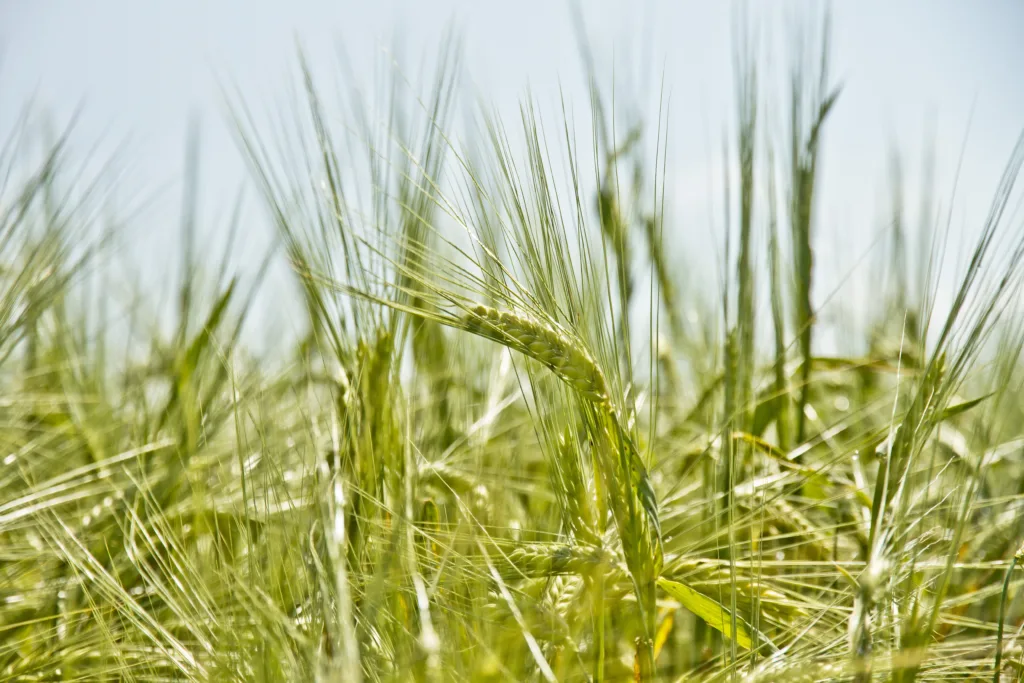Nutrients are essential for our body to function properly. They are the building blocks of our cells and provide energy to keep us going. As we all know, grains are an important source of nutrients. However, during the refinement process, many of these nutrients are lost. This is why it is important to understand which nutrients are lost during the grain refinement process.
One of the most important nutrients lost during the grain refinement process is fiber. Fiber is an essential nutrient that is found in whole grains. It helps to regulate our digestive system and can lower our risk of heart disease and diabetes. Unfortunately, during the refinement process, the bran and germ of the grain, which contain most of the fiber, are removed. This means that refined grains have much less fiber than whole grains.
Another important nutrient lost during the grain refinement process is iron. Iron is an essential mineral that is necessary for the production of red blood cells. It helps to transport oxygen throughout our body and can prevent anemia. During the refinement process, the bran and germ of the grain, which contain most of the iron, are removed. This means that refined grains have much less iron than whole grains.
A third important nutrient lost during the grain refinement process is vitamin B. There are many different types of vitamin B, but they are all important for our health. They help to convert food into energy and are necessary for the proper functioning of our nervous system. Unfortunately, during the refinement process, many of the B vitamins are lost. This is because the bran and germ of the grain, which contain most of the B vitamins, are removed. This means that refined grains have much less vitamin B than whole grains.
The grain refinement process can lead to the loss of many important nutrients such as fiber, iron, and vitamin B. This is why it is important to choose whole grains whenever possible. By doing so, you can ensure that you are getting all of the essential nutrients that your body neds to function properly. So, the next time you are at the grocery store, make sure to choose whole grains over refined grains to ensure that you are getting all of the essential nutrients that your body needs to stay healthy.
What Three Nutrients Are Lost During The Grain Refinement Process?
During the process of grain refinement, three important nutrients are lost. These nutrients are dietary fiber, iron, and many B vitamins. The refining process involves removing the bran and germ from the grains to give them a finer texture and improve their shelf life. Unfortunately, this also leads to the loss of the important nutrients that are present in the bran and germ of the grains. Dietary fiber is an essential nutrient that helps in digestion and maintaining bowel health. Iron is important for the formation of hemoglobin in the blood and helps in transporting oxygen throughout the body. B vitamins are important for energy production, brain function, and maintaining a healthy nervous system. Therefore, it is important to choose whole grain products intead of refined grains to ensure that these important nutrients are not lost.

What Vitamins Are Lacking In Refined Grains?
Refined grains, especially wheat, lack significant amounts of essential vitamins and minerals due to the refining process. In particular, refining wheat strips away more than half of the B vitamins, including thiamin, riboflavin, niacin, and vitamin B6. Additionally, up to 90 percent of the vitamin E content is removed during refining. Furthermore, virtually all of the fiber is lost in the process, which is essential for digestive health. the refining process significantly reduces the nutrient content of grains, leading to a less nutritious end product.
What Are The Things That Are Removed From The Grain During The Refining Process?
During the refining process, the germ and bran portions of the grain are removed leaving only the endosperm. The germ is the nutrient-rich embryo that can grow into a new plant and contains healthy fats, vitamin E, and antioxidants. The bran is the outer layer of the grain that contains fiber, minerals, and vitamins. Therefore, when grains are refined, the most nutrient-dense portions are removed, decreasing the overall nutritional value of the grain. To compensate for this loss, refined products are often enriched with key nutrients, such as B vitamins, that are added back.
What Nutritious Compound Is Not Replaced In Refined Grains?
Fiber is the nutritious compound that is not replaced in refined grains. Refined grains undergo processing that removes both the bran and germ, which are the parts of the grain that contain fiber, vitamins, and minerals. Although some nutrients like B vitamins and iron are added back in enrichment, fiber is not replaced. This means that refined grains have lower fiber content and fewer nutrients compared to whole grains. It is important to choose whole grains over refined grains to ensure adequate fiber intake and to reap the health benefits associated with fiber consumption, such as improved digestion, lower cholesterol levels, and reduced risk of chronic diseases.

Conclusion
Nutrients are essential for our overall health and well-being. They provide us with the necessary energy and building blocks for our bodies to function properly. A balanced diet that includes a variety of nutrient-rich foods, such as whole grains, fruits, vegetables, lean protein, and healthy fats, is crucial for maintaining good health. It is important to choose whole grains over refined grains whenever possible, as whole grains provide more fiber and nutrients than their refined counterparts. By making informed choices aout the foods we eat, we can ensure that we are giving our bodies the nutrients they need to thrive.
